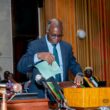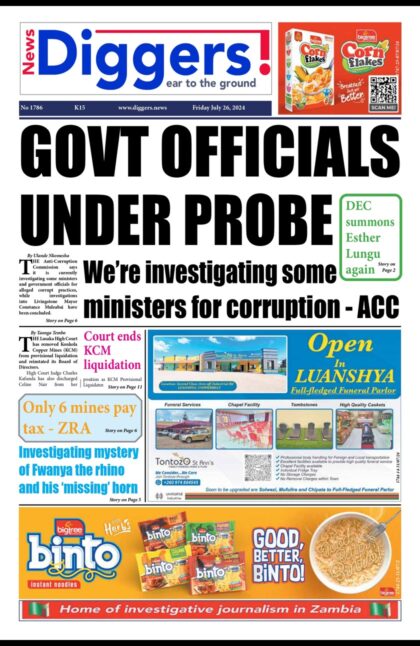The Consumer Unity and Trust Society (CUTS) has expressed disappointment at finance minister Felix Mutati’s failure to review the Pay As You Earn (PAYE) band in the 2018 national budget.
And CUTS says government should come up with policies that will compel mining companies to pay significant taxes so that Zambians can start benefiting more from the country’s mineral resources.
Responding to a press query, CUTS national coordinator Chenai Mukumba told from News Diggers! that she expected the finance minister to address the PAYE issue because it affected the poor workers in the country.
“The Minister of Finance gave the 2018 budget address under the theme ‘accelerating fiscal fitness for sustained inclusive growth without leaving anyone behind’. As Consumer Unity and Trust Society, our interest was in looking at what will be some of the implications of the budget on consumers. Regarding PAYE, we were disappointed to see that the Minister of Finance was silent on the PAYE bands. Although inflation has reduced it is not decelerating and as such, the cost of basic goods and services continues to increase,” Mukumba stated.
“According to JCTR, the basic needs basket for a family of five is hovering around K5’000 however the exempt PAYE threshold remains at K3’300. We had expected the Minister of Finance to consider increasing this threshold to at least K4’000 to ease the tax burden on the low income in our society. This issue is further emphasized by the fact that Zambia has one of the highest PAYE tax rates in the region and this has the potential of unfairly burdening the working poor in Zambia’s formal sector. We hope that the government will revisit this silence before the budget is approved.”
And Mukumba regretted that the proposed K2 excise duty per 50 Kg bag of cement would increase the costs of construction for many Zambians.
“There are certain measures that will directly affect consumers in the year 2018. Firstly is the proposed introduction of an excise duty of K2 per 50 Kg. As a developing country, there is still much construction taking place as we continue to develop our infrastructure. The introduction of this duty will increase the costs of construction as a whole and for many individuals this will increase the cost of building their individual houses. Most significantly this will have the most adverse impact on low-income households that are seeking to build their houses. It is our hope that the Infrastructure Development Fund to which these resources are being directed will have a meaningful positive benefit for the country,” Mukumba stated.
“Another increase we noted was that the TV levy is now K5 per month to be paid through a subscriber management service licensing system. Although entertainment is indeed a luxury, the government should avoid creating hurdles to its access for low-income consumers. Ideally, a more progressive approach to charging TV licenses whereby high-income households paid more than low-income households would be more appropriate.”
Meanwhile, Mukumba noted that it would be important for government to introduce mineral royalty taxes to enable Zambians to benefit more from the country’s mineral resources.
“As Zambians, at an individual level through our salaries and purchasing of goods and services we contribute over 30 per cent of the budget. Further to this, when compared to how much we are drawing from our mineral resources, mineral royalties are only contributing K3,5 billion to our national budget. It is important for the government to start thinking about how we can start to benefit more from our mineral resources while easing the burden on the very consumers who are key drivers of economic growth,” stated Mukumba.








